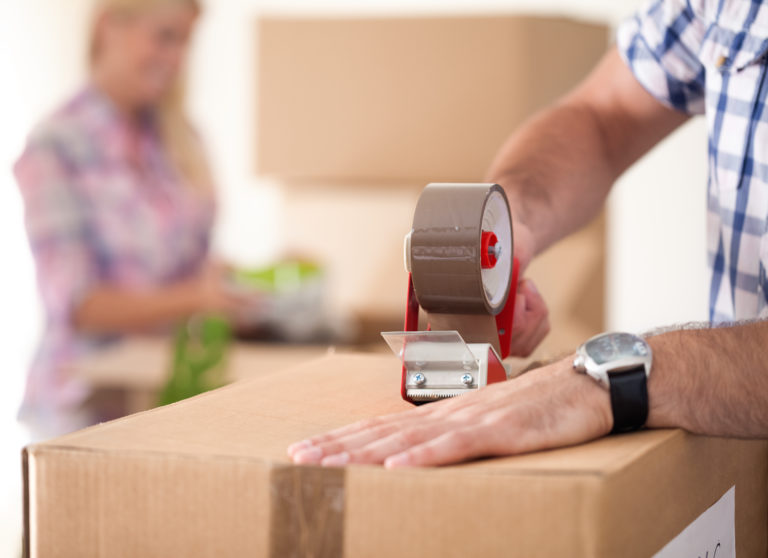Moving is a significant life event that requires planning and organization for yourself and consideration for those living around you. Good moving etiquette is an extension of being a friendly and respectful individual, which plays a crucial role in fostering and maintaining positive relationships with your neighbors. When you move into a new neighborhood or depart from an old one, the way you manage the process can set the tone for future interactions.
As you organize your move, it’s essential to inform your neighbors about your plans, particularly if the moving process might disrupt their daily routine. This gesture of advance notice acknowledges your shared communal space and signals respect for your neighbors’ time and comfort. It’s also a great opportunity to make a positive first impression or leave on good terms.
Minimizing disruption on a moving day reflects a thoughtful approach to being a good neighbor. This means scheduling your move at times less likely to interfere with your neighbors’ quiet enjoyment of their homes. Ensure that your moving activities, including parking, moving vehicles, and belongings handling, do not unnecessarily invade your neighbors’ property or common spaces. You help maintain a peaceful and courteous neighborhood atmosphere by showing consideration during your move.
Pre-Move Communication
Effective communication is the cornerstone of a smooth moving process, and maintaining cordial relationships with your neighbors starts with a clear exchange of information before your move.
Informing Your Neighbors
Notifying your neighbors about your upcoming move is courteous and practical. Provide them with the move date and expected timeframes for the most noticeable activities. This shows respect for their routine and peace.
- How to Inform:
- Drop off a note or speak to them in person.
- Mention specific dates and times.
- Be available to answer any questions or concerns.
Discussing Moving Plans
Engage in a conversation about your moving logistics. This includes where the moving truck will park, how you intend to handle large items, and if any common areas might be temporarily obstructed. Sharing this information in advance minimizes surprises and disruptions.
- Key Discussion Points:
- Moving truck parking arrangements.
- Shared space usage.
- Potential noise or disruptions and how you’ll mitigate them.
By introducing yourself and directly discussing your plans, you build a relationship with your neighbors based on mutual respect and clear communication, contributing positively to the neighborhood dynamic.
Moving Day Courtesy
When moving day arrives, it’s important to consider your neighbors’ impact at the forefront of your plans. By minimizing disruption, ensuring safety and accessibility, and adhering to parking restrictions, you demonstrate respect for your community while facilitating a smooth transition to your new home.
Minimizing Disruption
- Noise Levels: Keep noise to a minimum by avoiding loud conversations or music and handling items quietly. Start moving activities at a reasonable hour, typically after 8 AM, to prevent disturbing neighbors’ rest.
- Time Management: Plan your move during off-peak hours with less foot and vehicle traffic to reduce neighborhood congestion.
Safety and Accessibility
- Walkways: To prevent accidents, ensure clear and safe pathways by keeping boxes and furniture out of common walk areas.
- Moving Company Protocol: Instruct your moving company to prioritize safety by wearing appropriate attire, using caution signs when necessary, and being mindful of the neighborhood’s safety standards.
Adhering to Parking Restrictions
- Parking Space: Check local parking regulations and secure the necessary permits if you park a moving truck on the street. This will reduce the inconvenience to your neighbors and avoid fines.
- Neighborly Communication: If your move might encroach on a neighbor’s parking space, give them advance notice to arrange alternative parking.
Post-Move Considerations
Being a considerate neighbor continues once the boxes are in your new home. It’s time to focus on fostering positive relationships and respecting shared spaces.
Introducing Yourself to New Neighbors
It’s important to build rapport with your new neighbors. Try to greet your immediate neighbors within the first few days after moving in. Keep it simple and brief; a handshake and sharing your name goes a long way. Consider organizing a small get-together or an open house if appropriate, as it can be an effective way for everyone to get acquainted.
- Be proactive: Don’t wait for neighbors to make the first move.
- Be friendly but not intrusive: Respect your neighbors’ time and boundaries.
Respecting Privacy and Common Areas
Attention to privacy and common areas is crucial in maintaining good neighborly relations. Here are specific steps you should follow:
- Privacy:
- Avoid loud noise disturbing your neighbors, particularly during early mornings or late nights.
- Be mindful of where your windows and neighbors face, and maintain appropriate blinds or curtains for privacy.
- Common Areas:
- Keep shared spaces clean and unobstructed, whether hallways, elevators, gardens, or driveways.
- Follow community guidelines regarding using these areas, such as scheduled maintenance or quiet hours.
By incorporating kindness and consideration into your post-move actions, you create a harmonious environment for yourself and your neighbors.





